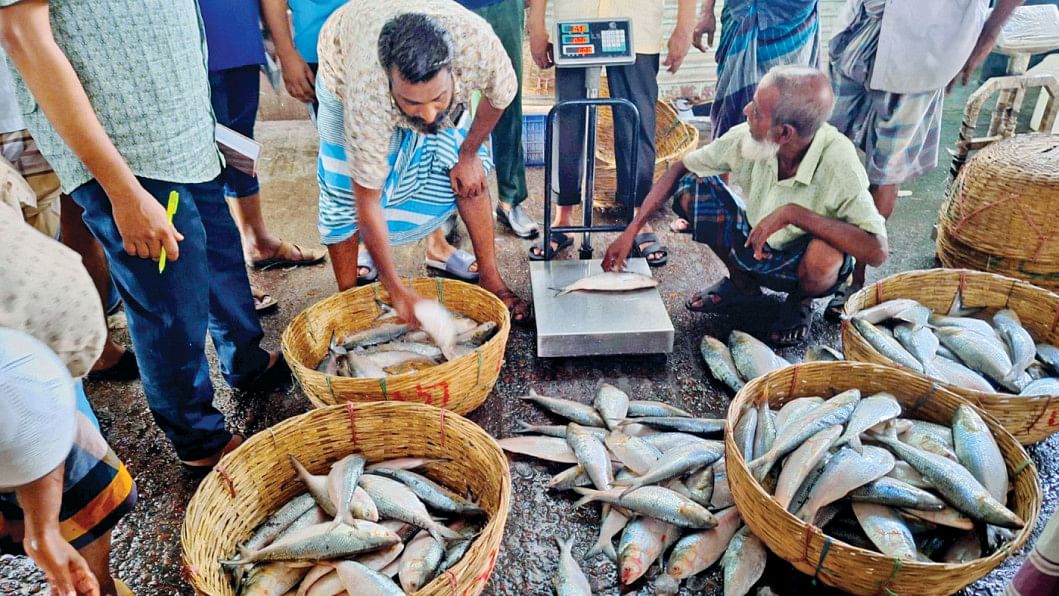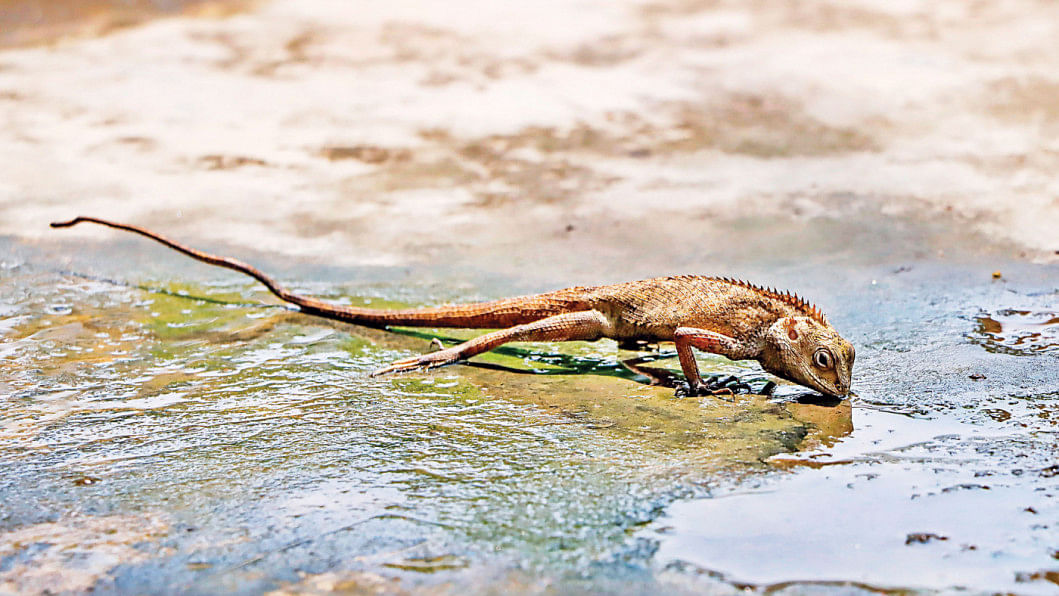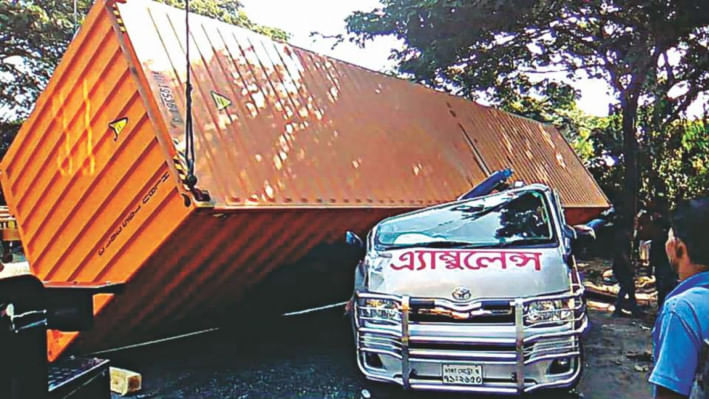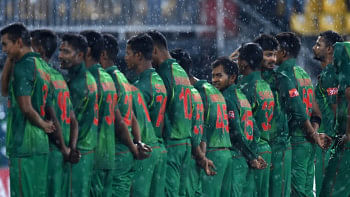Today's Gallery (2024.05.03)
Hilsas up for sale at the wholesale fish market on Barishal city’s Port Road yesterday, a day after the two-month ban on fishing in hilsa sanctuaries ended at midnight on Tuesday. The national fish, netted from local rivers including the Kirtankhola and the Arial Kha, was selling for Tk 52,000 to Tk 1,20,000 per maund, depending on size. Photo: Titu Das
TOO HOT FOR THE COLD BLOODED: An oriental garden lizard takes a sip of water from a drying puddle on the road in Jalma area of Khulna’s Batiaghata upazila recently. Lizards are ectothermic, or “cold blooded”, animals, which means they rely on the environment around them to regulate their body temperature, unlike mammals who can produce heat internally to stabalise their temperature. Without sweat glands or metabolic control, lizards can heat up very quickly if they find themselves out in the sun for too long, in which case they prefer to find shade or a burrow to hide in. The absence of these options can turn deadly for them. In a world where climate conditions are gradually getting tougher, it is safe to say that reptiles such as lizards find themselves in an increasingly vulnerable position. Photo: HABIBUR RAHMAN
An indigenous woman collecting as much groundwater as she can from a 5-6ft deep hole dug up in soft soil on the Chimbuk hill in Getsimoni Para near Bandarban’s Chimbuk-Nilgiri-Thanchi road. Amid the ongoing heatwave and an acute water crisis, the villagers living along the road have been facing unbound suffering. The photo was taken recently.
CAPTION: MONG SING HAI MARMA


















